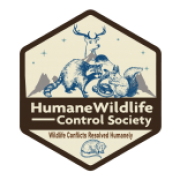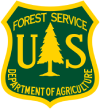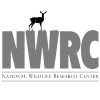Humane Wildlife Control in Des Moines, IA
The Humane Wildlife Control Society recommends non-invasive solutions to resolve human-wildlife conflicts. This includes:
Determining if the issue needs to be addressed at all
Opting for preventative measures first
Opting for wildlife exclusion as opposed to trapping
If trapping is the only way to solve the problem do so humanely
The Humane Wildlife Control Society screens candidates prior to recommendation. Our process requires any company we recommend to meet the following criteria:
Is properly licensed in Iowa for wildlife control
Carries appropriate business licenses and insurance
Complies with all Iowa laws and regulations for wildlife control
Adheres to the humane principles listed above.
In Des Moines, Iowa we recommend Humane Wildlife Removal Des Moines for professional wildlife control services. This is a private company that charges for their services.
Contact Information:
Wildlife Removal Des Moines
515-446-3748
If you have any wildlife issues that can be handled by the state government agency for free, the Iowa Wildlife Commission can help.
State Contact Information: (515) 725-8200
The State Department of Agriculture may also be able to address your wildlife problem for no charge.
USDA Contact Information: (515) 281-5321
Safe Wildlife Removal and Relocation in Des Moines, Iowa Des Moines, Iowa, with its rich tapestry of natural landscapes, is home to a diverse range of wildlife. As urban and rural areas intersect, encounters between humans and wild animals have become increasingly common. While these encounters often bring joy and fascination, they can also lead to conflicts that necessitate safe and humane solutions for wildlife removal and relocation. Understanding the Need for Safe Removal In Des Moines, species such as raccoons, squirrels, skunks, and bats often find their way into residential areas, attracted by food sources and shelter. When wildlife becomes a nuisance—affecting homes, gardens, or public spaces—it’s crucial to address these situations thoughtfully, prioritizing both human safety and animal welfare. Legal and Ethical Considerations In Iowa, the removal and relocation of wildlife are subject to specific regulations set by the Iowa Department of Natural Resources (DNR). These regulations are designed to ensure that practices are both humane and environmentally responsible. Permits and Regulations: Any trapping and relocation of wildlife typically require a permit. This ensures actions are within legal frameworks and helps maintain ecological balance. Humane Treatment: The Iowa DNR mandates that animals must be trapped humanely, using approved methods that minimize stress and injury. Relocation Guidelines: Relocation should be conducted responsibly, ensuring that animals are moved to suitable habitats where they can thrive without disrupting existing ecosystems. Engaging Professionals Due to the complexities involved in wildlife removal, engaging professional services is often the best course of action. Professionals experienced in wildlife control understand behavior patterns, legal requirements, and humane practices. Assessment and Prevention: Licensed experts first assess the situation, identifying points of entry and food sources. This step is crucial for preventing future incidents. Humane Trapping and Relocation: Professionals use ethical trapping techniques that ensure the safe capture of animals. Once captured, the animals are relocated to appropriate environments as per DNR guidelines. Prevention Measures: After removal, experts often provide advice or services to fortify properties against future intrusion, such as sealing entry points and securing garbage. Community Cooperation and Education Public awareness and community cooperation are vital components of successful wildlife management in Des Moines. Educating residents about coexistence strategies, such as proper waste management and securing food sources, can significantly reduce conflicts. Workshops and Resources: Local environmental organizations often offer workshops on humane wildlife management, providing residents with the knowledge to handle encounters responsibly. Reporting and Coordination: Swift, coordinated responses to wildlife issues can be facilitated by clear communication between residents and wildlife control professionals. Environmental and Ethical Implications Preserving the integrity of local ecosystems while managing wildlife conflicts is essential. Every effort must balance human needs with the welfare of the animal population. As urban areas in Des Moines continue to grow, ongoing community education and adherence to ethical practices will be crucial in harmonizing cohabitation between humans and wildlife. By following these guidelines, Des Moines can continue to be a place where both human and wildlife communities thrive, reflecting a commitment to conservation and ethical stewardship of natural resources.







